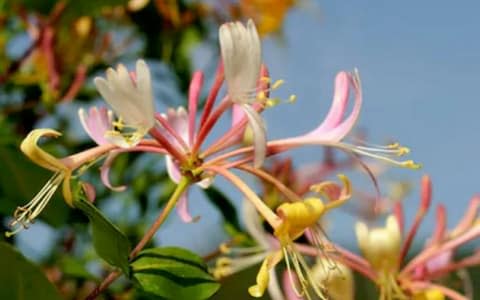Ditch the fuchsia to boost British wildlife, says Royal Horticultural Society

Gardeners should switch from exotic plants back to British to help wildlife, the Royal Horticultural Society has advised, following a landmark four year experiment.
In 2012, experts at the RHS filled 36 plots of land in Wisley, Surrey, with 14 different species from either Britain, the northern hemisphere or the southern hemisphere.
The plots were then tended like a normal garden for 48 months to see which insects moved in. It is the first research project to test whether the geographical origin of garden plants affect the amount and different types of insects and spiders they support.
The experiment showed that insects were more than three times as likely to choose plots with native British plants than exotic species. Out of the 22,000 bugs collected from the patches, 56 per cent of all invertebrates were found in the native ‘gardens’ compared to 26 per cent in the near-native plots, and just 19 per cent choosing the more exotic varieties.

Detritivore, such as woodlice and worms which provide a crucial leaf eating service which fertilises the oil, were 24 per cent higher on the native plots than the exotic and 36 per cent higher on native than on near-native plots.
RHS principal entomologist Dr Andrew Salisbury said: "In order to help create a positive environment for these valuable invertebrates to thrive gardeners should plant plenty of plants from the UK and relax, refrain from spraying plants at the first sign of pest attack, and reduce trimming and allow some plant debris to accumulate in order to support the garden's food chain."
Plant-dwelling invertebrates from caterpillars and butterflies to woodlice and weevils play a key role in a healthy garden, providing food for other wildlife such as birds, and include helpful predators such as ladybirds and spiders which keep down pests.

The RHS suggested attractive native plants that gardeners can add to borders to boost wildlife include foxgloves, purple loosestrife, common honeysuckle and heather. In contrast avoiding thyme, dahlia and fushia could help native insects.
Gardeners were also advised to turn a blind eye to the odd nibbled leaf or pest attack, rather than use pesticides. Pruning should also be used sparingly, the experts advise.
“The presence of a wide range of invertebrates, such as ladybirds, springtails, spiders and even caterpillars are indicators of a diverse and well-functioning garden eco-system, and so should be encouraged and supported,” added Dr Salisbury.
"While some of these animals, particularly herbivores, are traditionally regarded as pests by gardeners, they are vital to support healthy populations of natural predators which in turn help keep pest populations under control.
"And they provide food for garden birds and mammals such as hedgehogs. In short, an abundance of bugs of all types equates to healthy garden ecology."
The study was published in the journal Biodiversity and Conservation.

 Yahoo News
Yahoo News 